If your oven stops heating, gives weird error codes, or cooks unevenly, you’re probably wondering what went wrong and how to sort it out. The good news is many issues can be checked at home before you pick up the phone. The bad news? Some fixes need a qualified technician, especially when electrical parts are involved.
First, spot the symptoms. A cold oven is the most obvious sign – you set the temperature, but nothing happens. This often points to a broken heating element or a faulty thermostat. Uneven cooking, where the top browns but the bottom stays pale, usually means the element is cracked or the temperature sensor is out of sync.
Another frequent problem is the oven refusing to turn on at all. That could be as simple as a tripped circuit breaker, a loose power cord, or a dead door latch switch. Modern ovens also display error codes; a quick glance at the manual (or a quick online search) can tell you if the code means a sensor failure, a communication glitch, or a more serious control board issue.
Finally, listen for unusual noises. A humming sound without heat often means the element is receiving power but can’t heat up, while clicking noises may indicate a failing relay.
Start with the basics. Make sure the oven is properly plugged in and that the kitchen’s circuit breaker isn’t tripped. Resetting the breaker can solve a simple overload problem.
Next, check the oven door latch. If the door doesn’t close firmly, the oven’s safety switch will stop it from heating. Clean any debris and press the latch to see if it clicks into place.
If you’re comfortable with a screwdriver, you can inspect the heating element. Turn off the oven at the breaker, remove the back panel, and look for visible cracks or burn marks. A multimeter set to ohms can test continuity – a reading of infinite resistance means the element is broken and needs replacement.
Don’t forget the temperature sensor. It’s usually a thin metal rod attached to the oven walls. Test it with a multimeter; a healthy sensor reads around 1000 Ω at room temperature. Anything wildly off suggests the sensor is faulty.
When any of these checks point to a broken part, you have two options: replace it yourself if you’re handy and the part is easy to access, or call a professional. Replacing an element or sensor isn’t too hard for DIY folks, but working with the control board or internal wiring is best left to a qualified electrician, especially to keep the BSI (Gas Safe) rules in mind.
If you’ve gone through the steps above and the oven still won’t heat, or if you see smoke, strange smells, or sparks, shut it off immediately and call an expert. Trying to force a fix can cause more damage or create a safety hazard.
At Bognor Regis Appliance Repair Experts we specialize in electric oven repairs. Our technicians can quickly diagnose heating element failures, sensor issues, and control board problems. We’ll give you a clear quote, fix the fault, and test the oven to make sure it’s back to normal.
Bottom line: many electric oven problems start with a simple power or sensor issue that you can check yourself. If the fix looks beyond a basic part swap, trust a professional to keep you safe and get your oven cooking again in no time.
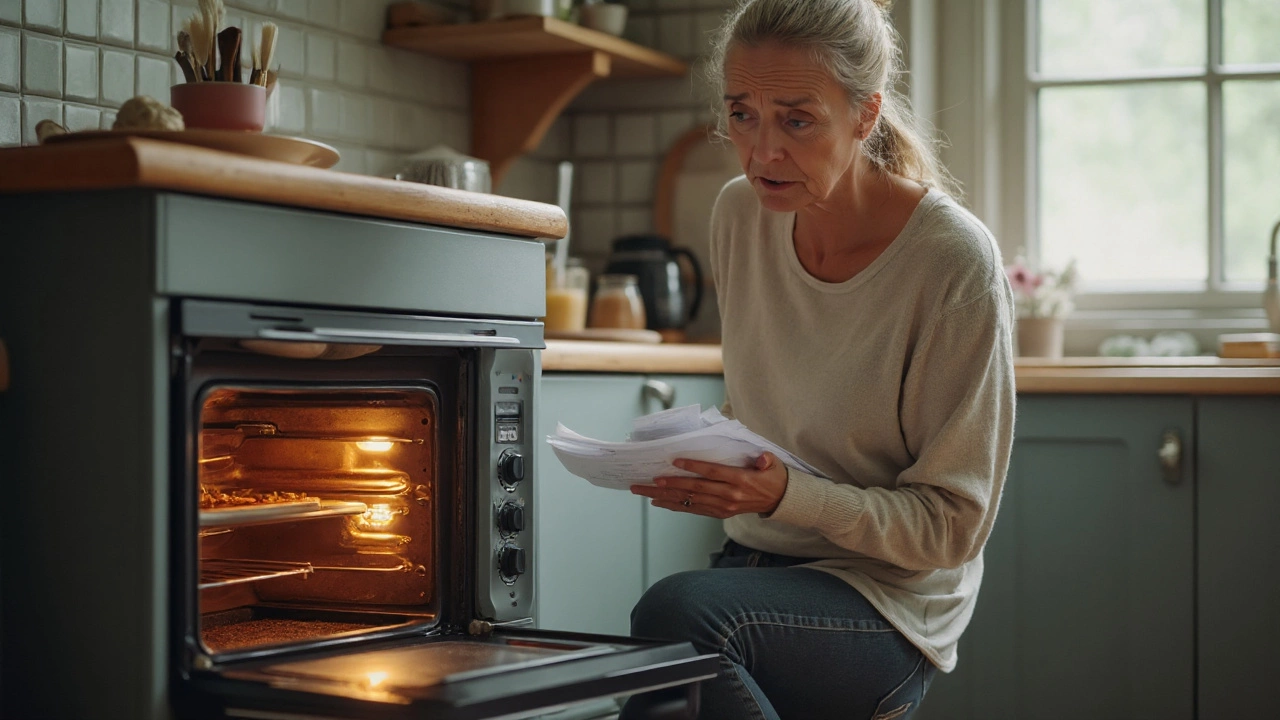
Got an electric oven that's not heating? Discover the most common issues, why they happen, and how you can fix or prevent them without calling a pro.

If your extractor fan has suddenly stopped working, it's not just annoying but can lead to bigger problems like excess moisture and lingering odors. This article will delve into common issues with extractor fans and provide practical solutions you can try at home. Learn about potential causes, from power supply problems to sensor malfunctions, along with straightforward fixes. Some tips might even save you from calling in a professional. Get your fan back up and running with ease!
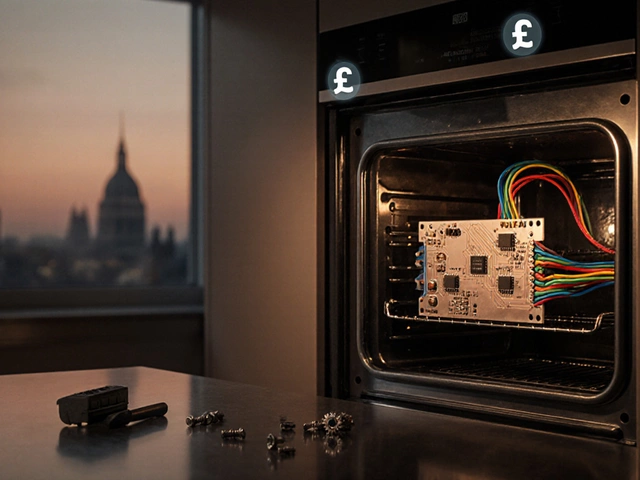
Learn the typical UK price for an oven control board, factors that affect cost, DIY steps, and when to call a professional in 2025.
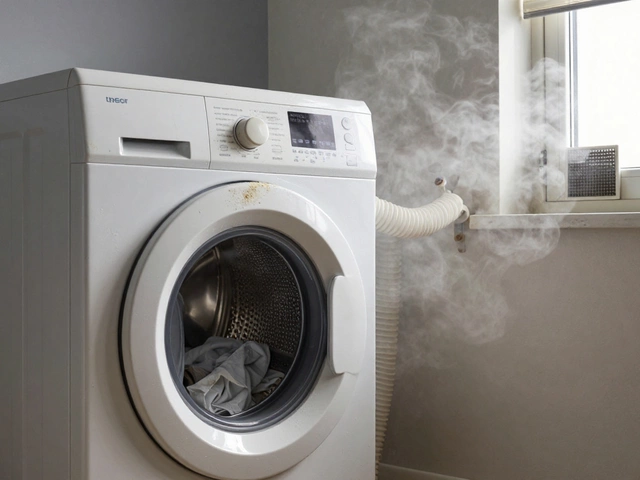
Most tumble dryers last 8-13 years, but poor maintenance can cut that in half. Learn the signs your dryer is failing, when to repair vs replace, and how to make it last longer.
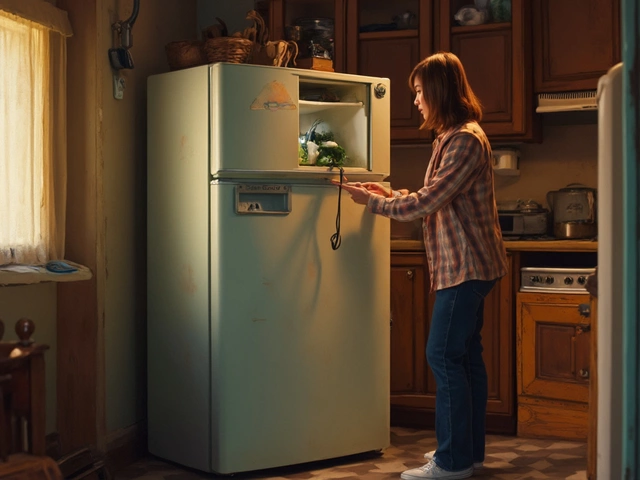
When your refrigerator suddenly stops working, it can cause quite a panic. But before calling in the repair services, there's one crucial thing you should check first: the power source. This step is often overlooked but can save you both time and money. Reliability and efficiency in troubleshooting can help bring your fridge back to life or at least determine the next best steps.
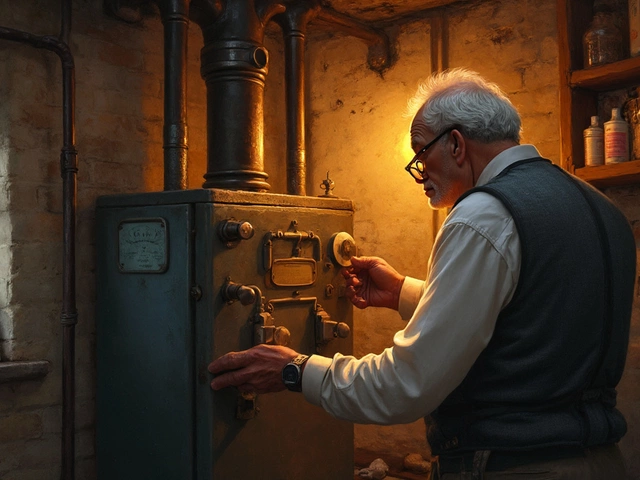
Boiler lifespan can vary greatly depending on usage, maintenance, and type. On average, boilers last anywhere from 10 to 15 years. Regular maintenance is key to prolonging the life of your boiler and ensuring it functions efficiently. In this article, discover how to keep your boiler in top shape and when it might be time to replace it.